October 22, 2018 0 Comments

Magic. We all know what it is. But when asked to define it, it can be a bit tricky to give it a good definition of magick's meaning. So let's start with the basics. All types of magick have two parts: the belief part and the practical part. If you didn't believe magic was real, then why practice it at all? If you don't use magic for anything, why believe in it?
With an intro to magick, it is worth noting up front that the magic this article talks about is also sometimes spelled "magick." This is mostly to distinguish it from the kind of magic with card tricks and rabbits being pulled out of hats. Another reason some spell it this way is that they use the "k" at the end to stand for "kteis." Kteis is a Greek word representing the passive or reproductive powers of nature. In this sense, magick is balanced against the oppressive aspects of more dogmatic religious traditions that seek to regulate individual behavior and enforce social norms.
Belief systems can tell us a lot about magic. Some belief systems, such as Hinduism, have a practical side (what we in the West call "yoga"). Other systems, such as the nature-based religious views collectively called "witchcraft" or "paganism" have a collection of holy days, sometimes called "sabbaths," that involve ceremonies, which honor different parts of the agricultural year. Whether one practices yoga and/ or does ceremonial magick, one performs something in accordance with a belief system. We can call these performances either magical acts or "rituals."
The simplest belief system is devotion to a personal deity, which is another term for a "god," or a group of deities, which is called a "pantheon." In this basic system, one communes with the divine through prayer. Prayer is one of the most basic and widespread magical acts and should be thought of as making a petition or stating one's intent.
What differentiates systems of magick from other belief systems is that the magician's intentions play a larger role. In more traditional belief systems, such as Christianity, the intentions of the group's morality override the personal autonomy of the individual believers. In magical systems, one may work with the same god that church-goers revere, but the magician has a personal role, making direct contact with that divine entity, and gaining both knowledge and empowerment through that connection.
It is really difficult to come up with a good, general theory about magic that explains it in terms of a universally true, generic belief system. So it helps to examine belief systems organically and in terms of how they exist in the world. Belief systems all share certain things in common, but they differ in significant ways beyond superficial aspects such as the name of the entities they feature, or their ethno-geographic origins.
The first difference between different types of belief systems is that they tend to involve certain magickal tools and different entities, and some have none at all. We can differentiate between systems that feature a bunch of different entities (polytheistic systems) or just one (monotheistic systems). With these differences in mind, it is important to remember that belief systems not only feature different entities, if any, but also distinguish the very nature of these entities.
The first difference between belief systems is that they tend to involve different entities, and some have none at all. We can differentiate between systems that feature a bunch of different entities (polytheistic systems) or just one (monotheistic systems). With these differences in mind, it is important to remember that belief systems not only feature different entities, if any, but also distinguish the very nature of these entities. Even belief systems that we regard as fairly standardized and homogenous, such as Christianity, have featured disagreements over whether its central figure, Christ, was a man, or a god, or both, and if the central god figure in the bible was a good, liberating force, or an intimidating figure of oppression.
Another thing to consider is whether your belief system is eclectic or not. Eclectic belief systems combine elements from multiple belief systems and tend to have more variety. People who are worldly and travel a lot, or live in large cities, tend to encounter more diversity; eclectic belief systems tend to originate from and become more popular in larger metropolitan areas where the free exchange of ideas can take place as people move through and get exposed to beliefs from other places. Christianity itself is one such eclectic system, being a fusion of Messianic Judaism with Greek and Roman mystery cults; other eclectic systems that formed in well-populated urban areas are Thelema and Chaos magic. That said, most of the modern magical belief systems tend to have some degree of eclecticism. One that takes it to extremes is Chaos Magic, which is totally eclectic and individualistic.
When thinking about belief systems, consider them in terms of these three aspects:
their core tenets, teachings, and practices. Not all belief systems have all three of these components, but when thinking about the belief system you adhere to, or wish to create from scratch, these aspects serve as really good guidelines. They help articulate what your system consists of and what it means to practice it.
As belief systems tend to have a core and central binding idea -- sometimes called a central dogma, creed, proclamation, testimony, shahada or charigma -- the best place to begin with, are these systems' tenets, especially with magick for beginners. If you are interested in exploring different types of magick and would like items to get you started, consider our collection of Ritual Kits.

Wicca is a nature-based belief system inspired by traditional Celtic and British craft, that comes in both traditional, initiation-based versions that revolve around membership in a coven whose rituals revolve around a god-and-goddess pair, as well as solitary, more individualistic eclectic forms that keep intact the nature-based religion, but explore the religious mysteries of other belief systems.
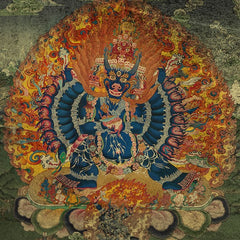
Similarly succinct is the general tenet of Buddhism, which one could sum up as "agony is born of desire."
Buddhist magic can be found in its esoteric variations, such as the Vajrayana Buddhism originating in Tibet, and Shingon Buddhism in Japan. An eclectic belief system called Shugendo combines Buddhist mysticism with the nature-reverence of Shintoism and traditional Chinese Taoist sorcery. Shugendo is popular with people who practice ninjutsu, as it involves physical practice, including spiritual quests where people climb up mountains and swim in freezing water.
These encapsulate in a condensed form the major metaphysical and ethical guidelines of that belief system. Some more tenets are:

"There is no part of me that is not of the gods."
Gnosticism is a system that teaches that the physical world we inhabit is a prison created by an evil god called the Demiurge, and the spiritual world is the real world; by connecting with the good god (the Monad, or, the "One," one transcends the physical plane and becomes illuminated. Gnosticism originated in the writings of the ancient Greek philosophers Plato and Aristotle and continues to be an extremely influential belief system, heavily influencing Christianity and being the main plot of the Hollywood movie The Matrix.
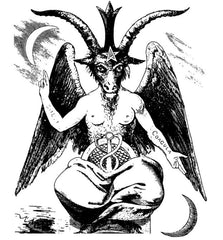
This is basically Gnosticism, but the "Monad" and the "Demiurge" are the same entity; one does not strive for liberation, but, rather, one seeks to overcome the spiritual and material bonds imposed by the universe we reside in. This is not as popular by any means as normal Gnosticism but shows up in a lot of heavy metal music and horror fiction.
Additionally, the relationship between the practitioner and what entities they work with can be divided into two schools of thought -- a right-hand, devotional camp, and a left-hand, individualistic camp. All belief systems have both right-hand and left-hand paths, and there are no belief systems that are exclusively right-hand or left-hand. If there was no left-hand path, someone would make up their own.
Even Jewish mysticism and Christianity have a left-hand path traditions, in the form of the Qlippoth and antinomian/anarchistic Christianity. These are actually more heretical than merely "worshipping Satan," in that one is claiming to be as powerful as the Jewish and Christian god.
Satanism has both RHP and LHP versions. Satanism was popularized in the writings of Anton LaVey as a kind of spooky atheism that used Satan as a literary figure, rather than a spiritual force, as an inspiration driving rational self-interest and indulging in life rather than reward suffering. It is highly individualistic, but there are people, whether real or imagined, who "worship" Satan in the sense that a Christian "worships" Christ. This kind of Satanism, although not really something anyone does, is a right-hand path belief system.

If this sounds familiar, it is because it is where Gardnerian Wicca's rede came from. Thelema is an eclectic religion that combines Jewish mysticism (especially the Qabala and The Zohar) with British mysticism and Eastern meditative practice. It was formalized in the writings of the British poet and occultist, Aleister Crowley, in the first half of the 20th century, and is heavily influenced by Freemasonry and Egyptian mythology. Thelema is practiced both by initiatory groups such as the Ordo Templi Orientis (OTO), as well as solitary practitioners.
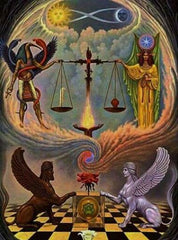
"As above, so below."
Hermeticism became popular in the Renaissance era, when people began to view scientific discovery as discovering the true divine nature of the universe. The scientific truths that could be gleamed through telescopes and in laboratories (the "below") were the same as the theological truths that governed the grand scale of the universe (the "above"). This is still a popular belief system and accommodates atheist and agnostic forms of magic.
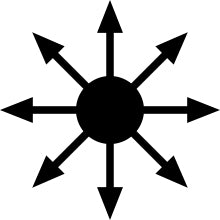
Chaos magic is an extremely modern system of magic that gained traction the UK in the 1970s and involves extreme eclecticism, a belief that there is no ultimate reality, and that chaos -- the force that allows anything to be possible -- is the only real foundation of the universe. It is very popular because it allows people to do whatever they want, but it has very serious practitioners, such as the Illuminates of Thanateros, one of the world's most exclusive and secretive magical orders.
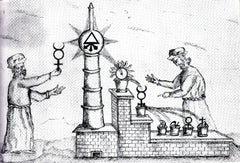
Alchemy is a form of deep psychology that uses chemical metaphors for explaining spiritual and cognitive mechanisms. One breaks down (dissolves) their ego, and reforms (coagulates) their personality in a perfected way. The origins of alchemy involved attempting to perform impossible tasks such as transforming lead into gold, but this has largely given way to a more figurative practice.
Older religions tend to accumulate a lot of additions to their core tenets, and so it is difficult for some older religions to summarize what they stand for if anything. Ancient Greek religion, also known as Hellenism, is like this. It is more about a world-view and a collection of forces of nature personified into gods and goddesses, than about a single creed.
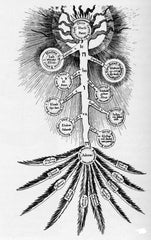
Qabala is Jewish mysticism influenced by The Zohar, which originates from 13th century Spain. It outlines a complex but elegant system in which the material world (Malkuth) emanated from the divine (Kether), and is very structurally deep. In the 14th through 16th centuries, the Catholic church tried to convert Jewish people by training priests in the Qabala and having them try to "prove" that Jewish mysticism was in line with Christianity. Although this project failed and seems really offensive by today's standards, it directly led to Christian Kabbalah (notice the spelling difference), which has influenced belief systems such as those associated with Freemasonry, Rosicrucianism, The Golden Dawn, Thelema and even Wicca.
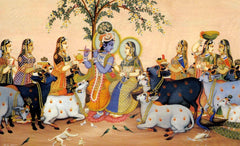
By sheer numbers alone, Hinduism is the world's largest polytheistic belief system. As a term, Hinduism refers not to a singular religion, but rather a constellation of practices and beliefs originating from India. Although the term Hinduism isn't really offensive, it tends to be inaccurate. One may be devoted to Krishna, or work primarily with Shiva.
In this sense, Hinduism is automatically eclectic. It also has its own form of magical practices, which in the West many people just call "yoga." Yoga, which means "union," itself is a very old and intricate system, and despite being commercialized in the West, has a great deal of variation. Some forms of yoga just involve maintaining poses called asanas. This is the kind of yoga that people do at yoga studios.
But there are other kinds of yoga such as Bhakti, or devotional, yoga, which involves the practitioner forming a deep spiritual bond with a divine entity. This is very conducive mysticism. Other forms of yoga include Kundalini and Raja yoga, which are more mentally focused and involve energy and breath control rather than just maintaining a pose.
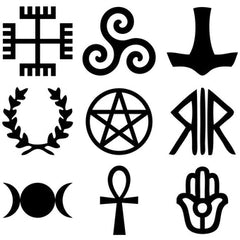
Pagan comes from the Latin word for "country-person" and was originally somewhat of an insult that has been reclaimed by polytheists. It isn't really the "revival" of "ancient tradition" but is rather a reconstruction based on a turn of the 20th century scholarship, what people once thought about the old era, rather than an unbroken connection to the practices actually done by people in the past. Neopaganism is something of an umbrella term.
To conclude, we have the fortunate position to live in a hyper-connected era in which we can all bring up massive amounts of information about belief systems online, and not have to rely on vicious rumors or dogmatic authorities to think for us. If anything, this has deepened our connection to magic rather than made modern life more secular.
Magic, and mysticism, are deeply engrained aspects of human nature, and have been with us since the beginning. In deciding what your own personal belief system consists of, it helps to think about the background you have come from, and what you choose to practice.
In this sense, a belief system is not really about what your religious views are, but what kind of relationship you have with those views. For some of us, eclecticism isn't really a good fit, but we can benefit from really thinking about what kind of relationship we have with the religious views we were brought up with.
For others, eclecticism reflects a view that religion is a personal relationship with the divine and that all religions are manifestations of this power. And others may want to reject that in order to pursue personal empowerment and find the deep psychology afforded by magic a good lens through which to understand the world around them.
Read more on astrology, horoscopes, occultism, magick & ritual on our blog, Esoteric Insights!
November 14, 2025 0 Comments
September 30, 2025 0 Comments
Are Labubus demonic? Are Labubus satanic? The internet loves a good conspiracy —especially when it involves something cute and strange. Recently, the Labubu doll became the subject of a bizarre claim: that it’s connected to ancient demons, specifically the Mesopotamian figure Pazuzu, made infamous in The Exorcist. Some Christian groups have even gone so far as to call the toy “satanic” or “possessed.” But is there any truth to this? Let’s dig into the symbolism, the different interpretations of “Satanism,” and how various spiritual traditions understand demons very differently.
July 05, 2025 0 Comments
As the Sun dips into the fiery heart of summer, July emerges—golden, long, and lazy. And right alongside it, the zodiac’s watery guardian, Cancer, takes the helm. July is one of the few month’s of the year (next to March or April, depending on the date of Ostara) where a pagan holiday or fire festival is not observed, yet the middle of summer seems almost ritualistic in how entrenched we become with the richness of the season. Looking further, it only makes sense as to why Cancer, summer’s sweetest star sign, is the mascot to the start of summer. Here’s why the vibrancy of July and the nurturing essence of Cancer are cosmic twins—bound by symbolism, season, and soul.